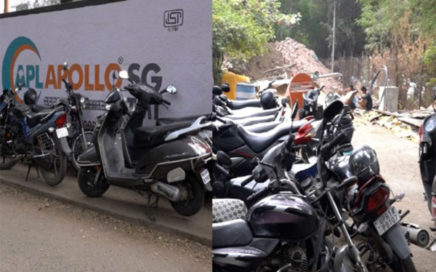
Nagpur: The Maharashtra Government on Tuesday strongly defended its flagship welfare initiatives, including the Ladki Bahin Yojana, asserting that these schemes are essential for addressing socio-economic challenges and do not place an undue burden on the state’s finances.
In an affidavit submitted to the Nagpur Bench of the Bombay High Court, Finance Department Joint Secretary Pandurang Jadhav emphasized that these schemes fall within the purview of policy matters, which courts cannot ordinarily interfere with.
“These initiatives are vital to tackling issues such as anaemia among women, which affects over 50% of the state’s female population, and addressing the low female employment rate of 28.7%,” the affidavit stated, citing survey data.
The affidavit was filed in response to a Public Interest Litigation (PIL) submitted by social activist Anil Wadpalliwar through advocate Shreerang Bhandarkar. The PIL alleged that the schemes were politically motivated “freebies” aimed at influencing voters ahead of elections.
Government justifies schemes
The government described the Ladki Bahin Yojana as a measure to promote financial independence among underprivileged women. Other key schemes highlighted in the affidavit include:
• Mukhyamantri Baliraja Vij Savalat Yojana: Electricity subsidies for farmers.
• Mukhyamantri Annapurna Yojana: Free LPG cylinder refills.
• Pink E-Rickshaw Scheme: Promoting self-employment among women.
• Free Higher Education: For eligible girls pursuing professional courses.
The affidavit clarified that these welfare programs target marginalized groups, including women, farmers, and backward classes, in alignment with constitutional directives and state policy. Eligibility criteria ensure benefits reach only deserving beneficiaries, such as limiting the women’s welfare scheme to families earning less than ₹2.5 lakh annually and excluding government employees.
Fiscal prudence asserted
Addressing concerns raised in the PIL, the government cited fiscal data projecting a deficit-to-GSDP ratio of 2.59% for 2024-25, within the 3% limit prescribed by the Fiscal Responsibility and Budgetary Management (FRBM) Act. Maharashtra’s fiscal discipline has been commended in the RBI’s State Finances Risk Analysis Report, which described the state’s performance as “stellar.”
Petitioner’s concerns
The petitioner argued that Maharashtra’s rising public debt, projected to reach ₹7.82 lakh crore by 2024-25, coupled with high revenue expenditure, creates a precarious financial situation. Wadpalliwar claimed the unchecked distribution of welfare schemes could jeopardize the state’s fiscal future.
Government counters allegations
The government rejected these claims, asserting that internal objections from the Finance Department cannot undermine Cabinet decisions, which operate on collective responsibility. It also maintained that courts have limited jurisdiction to review policy and financial decisions, which fall under the executive’s domain and are subject to legislative oversight.
Citing a precedent from August 2024, the affidavit noted that the High Court’s principal bench had dismissed similar challenges to welfare schemes, including the Ladki Bahin Yojana.
A division bench comprising Justice Nitin Sambre and Justice Vrushali Joshi on Wednesday adjourned the hearing by a week, granting time for the petitioner’s counsel to file a reply. The govt informed the court that Advocate General Birendra Saraf would present its case in the next hearing. Seeking dismissal of the PIL, the govt concluded it was premature and speculative, as fiscal parameters can only be fully assessed at the end of the fiscal. It reaffirmed that existing constitutional and legislative frameworks provide sufficient checks and balances, making additional judicial intervention unnecessary. The High Court has allowed petitioner’s counsel to file a reply if he wishes to do so.
The court had instructed the state government to submit its response by January 15. In response, the state government maintained that the court cannot intervene in policy decisions and framed the matter as one outside the judiciary’s purview. The High Court had previously instructed social activist Anil Wadapalliwar, who filed a Public Interest Litigation (PIL) against these schemes, to provide additional documentation, including details from the Fiscal Responsibility and Budget Management Act. Wadapalliwar had complied with this request and sought permission to amend his petition, which the court granted and instructed the government to reply to the amended petition.




















